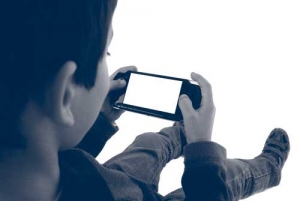FEAR, JUDGMENT AND EGO
Watch this video to see what is getting in the way of your parenting. Then read on, and I’ll help you fix it!
So, I’ve been working with teenagers and their parents for twenty years, and the same themes come up over and over again. Parents consult me for any number of reasons:


The reasons for those initial calls, as you can see, vary wildly. But regardless of the shift in behavior, there is one phenomenon I see in most every situation.
In one way or another, parents tend to report to me that their children are no longer open, accessible, available to them. Kids are so unavailable that, despite our openness to offer guidance and counsel, they will not listen to it, learn from it, or accept it in any way.
This is the nature of adolescence, right? From neighbors, media, family, the message is clear. Parenting a teenager is rough, and getting through to them just gets harder with time.
This is what the problem looks like, the way it is commonly described to me, and the primary reason you as a family need someone from the outside to intervene. Expensively, I might add.
This is what the problem looks like. But I have learned, over and over again, that this is never really the problem.
No, the truth is quite the opposite.
Because of the laundry list of issues that might arise during our child’s adolescence, because we want things to happen a certain way, because we want our kids to be safe and sound, because parenting a teenager is so scary, it is actually we parents who become unavailable.
Yes, when the veil is lifted, we are the ones who are unavailable to our kids when they need us most.
It is our fear, our judgment, and our egos that disrupt the connection. Teenagers just recognize that we are unavailable, and step back themselves.
Now, there is good news right underneath the surface of this problem. If we are the ones who are unavailable, and it is our fear, judgment and ego getting in the way, we can actually do something about it.
We have agency, and that is huge.
See, the issues listed above, all of them, are big deals. And our kids need our openness, advice and counsel to manage them.
So, it is imperative that we place our fear, judgment and ego in check, so that we can truly be available as the guide our child needs now.
So, given all that can go wrong, how can we place our fear, judgment and ego in check, so that we can guide our kids through the often rough waters of adolescence?
I want you to start by following these simple steps, and do it right now:
- Think of a parenting issue that you are struggling with.
- Address your FEAR. To what degree does your fear play a role in the issue? Are you afraid the situation will get worse? Are you afraid your child will not be able to handle the situation, or will choose to avoid it altogether? Write these fears down, being as honest as possible with yourself.
- Now, think about your JUDGMENT. Your gut impulse may be that you are not judgmental in any way, but take a beat here. Are you judging your child’s choices? His competence? His level of motivation? Are you judging his friends? And finally, are you judging yourself? I cannot tell you how often parents find, upon honest reflection, that they judge themselves and their parenting very, very harshly when an issue arises with their child. Write down your judgments.
- Finally, consider your EGO. Are you personally invested, to an unhealthy degree, in this situation? Do you fear others will view the situation as a reflection on you, your family, or your parenting? Write down those ego concerns.
- Read through your fears, judgments, and ego concerns.
- Now, consciously place those concerns aside, and approach the issue with your child openly and collaboratively.
We know that our kids can sense our fear, and judgment, and ego. And they cannot trust us when these three forces run our minds. But when we place these three aside, our kids can sense this as well. And the more open and available you are with him, the more he will be with you. It truly is that simple.This may seem super-complicated and arduous, I know. But it’s not. Just try it, and trust me that it will ultimately be so much easier on both of you.Please leave a comment below and share your thoughts. Tell me your story. What did this feel like for you? What difference did you see in your child? How did the problem-solving go?And keep your eyes on your e-mail. Next we will talk about the benefits of hearing your child out.Hang in there! Let’s figure this out together.
Warmly,
John
I’ve read your book and applied the techniques. It has been a godsend! Thank you so much. Keep going back to it. Somewhat counterintuitive compared to traditional parenting practices in my mind but so spot on.
You are an incredible breath of fresh air, and every parent needs to hear this. I have parented with an available, open style from day one, and my kids tell me pretty much everything. My 17 year old daughter recently (laughingly) told me she thinks I injected her and her brother (my 18 year old son) with truth serum when they were born, because they just want to tell me everything, and their friends all think they are crazy for sharing all the details of their lives with their parents.
Now, before I go patting myself on the back too much, I realize that my availability and openness still cannot prevent my kids from going down certain paths. My daughter follows all the rules and does everything right…my son has always been more of an independent thinker, more strong willed, and more difficult to manage. He, as an 18 year old senior in high school, is starting to experiment, having his first girlfriend, and has had a few experiences with alcohol and pot. We have taken the approach that they should always tell the truth, and we will deal with things together. We realize kids will experiment, and although we are not excited about this fact, it is a fact for some kids, and we want to be able to advise them, which we cannot do if they are not talking. We help them make decisions as they go through each event, by not punishing, but rather giving them the facts about consequences (health, financial, legal, social) of their choices. We let them know we want the very best for them, but that their choices will decide what that will be, not our wishes, desires, demands or punishments as parents.
The way this manifested itself for us was to start talking EARLY! We always discussed every issue that they came across, and gave age-appropriate advice in all matters. Sex, drugs, friend relationships….as early as they confronted issues, we had discussions and gave honest, factual information and advice. I often listened to a question that I was internally shocked they were asking, and sometimes had to say that Mom needs a little time to think about the right answer to this, but I will get right back to you, in order to come up with the most positive, age-appropriate answer, but never let them know I was shocked, or uncomfortable, with a topic, to keep the lines of communication open.
Always, we stress unconditional love, and that we are here to help, advise and guide, not to judge or punish, as those do not help in most cases.
Your work, Dr. Duffy, is awesome, and so needed in today’s world where kids have so much independence and greater responsibility than ever before on their journey to leave the nest and become responsible, contributing young adults. I look forward to each of your videos, to confirm our approach, and learn more of your methods, and am sharing your website with all the parents I know. I hope to make it to your book signing on January 31 at Concordia University. Keep up the great work!!!!!!
Thanks John – very helpful! We have a great kid (freshman in hs) and we haven’t had any major problems yet – still very connected! But we are having an issue because we think he’s playing too many video games. Fear – We worry that it’s not good for him and he’s missing out on true connections. Judgement – We judge him because he SHOULD want more out of life. Ego – We worry that this will carry over into his life and that’s all he’ll do with his free time. Ok, putting all that aside. He DOES hang out with friends, he works very hard at school and he definitely enjoys his down time. We just want him to have more balance. Listening to this helps me connect with him to discuss this WITHOUT fear, judging and ego. Thank you!
Thanks for sharing, Carrie. Seems as if your guy is in VERY good hands!!
Thank you, Roxanne, for sharing your kind and lovely thoughts. You sound like a most available parent. And you highlight such an important point. Talk openly and honestly, and start early! It’s so much tougher to invent that wheel in the midst of adolescence. Thank you again!
Thank you, Joe – stick with it!